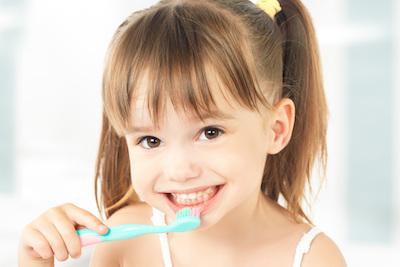
As a parent, seeing your child in pain is difficult. You’ve looked in their mouth and don’t see anything, and they just had a check-up. So what could be causing their tooth sensitivity?
Tooth sensitivity in children is more common than you might think and can stem from various causes. Our goal is to provide parents and caregivers with clear, expert information to help them understand and address this issue.
In this guide, our pediatric dental experts will walk you through:
- What tooth sensitivity is and how to spot it.
- The most common culprits behind your child's discomfort.
- Actionable steps you can take to help.
What Is Tooth Sensitivity? A Simple Explanation
Tooth sensitivity, also known as dental hypersensitivity, is a sharp, short pain in the teeth or gums. It often occurs when your child eats or drinks something hot, cold, sweet, or acidic. They might complain of a "zing" or "ouch" feeling in one or more teeth. If you notice your child complaining of discomfort, it’s always best to contact a children's dentist in Castle Pines or Highlands Ranch for guidance.
Why Your Child’s Teeth Might Be Sensitive
Typically, children don’t complain about tooth pain unless it is genuinely present and painful. So, if your little one feels discomfort—even if you don’t see an obvious culprit—it’s crucial to let us know as soon as possible.
Below, we share the top reasons for tooth pain or sensitivity in children. However, these are not the only culprits!
Reason #1: The Prime Suspect - Dental Cavities
You might not see a cavity, but that doesn’t mean it isn't there. Tooth decay often starts small and can be hidden between teeth, on the back molars, or in other hard-to-see areas. Tiny cavities can be the source of significant pain. Regular dental exams are critical because they allow our team to detect and treat cavities before they become painful.
Reason #2: New Permanent Teeth Erupting
Just like with baby teeth, the eruption of permanent teeth can be uncomfortable. When a new tooth pushes through the gums, it can cause tenderness and sensitivity in that area. This type of discomfort is temporary and typically resolves once the tooth has fully emerged.
Reason #3: The Brushing Blunder — Brushing Too Hard
While we want children to brush thoroughly, brushing too aggressively can be a problem. Overly forceful brushing can wear away the protective enamel on the teeth. Once the enamel is gone, the sensitive layer beneath it, called dentin, is exposed, leading to sharp pain.
Reason #4: A Sinus Situation — Sinus Pressure and Congestion
The sinus tracts are located directly above the upper teeth. When your child has a cold or allergies, the resulting sinus pressure can feel like a toothache. The discomfort is not in the teeth themselves but is a referred pain from the inflamed sinuses.
Reason #5: The Nightly Grind —Teeth Grinding (Bruxism)
Many children grind or clench their teeth at night, a condition called bruxism. This habit puts a lot of stress on the teeth and jaws, wearing down enamel and leading to tooth sensitivity, headaches, and jaw pain. If you hear grinding sounds or your child complains of a sore jaw in the morning, be sure to mention it at their next dental appointment.
Bonus Culprits: In older children, tooth sensitivity can also result from the eruption of wisdom teeth. These late molars show up during the late teens or early adulthood. If there is not enough room in the jaw to accommodate these teeth or if they erupt only partially, they can cause pain and infection. Tooth infections are yet another consideration, or an oral injury that your child neglected to report.
How Parents Can Help with Tooth Sensitivity

If your child is experiencing tooth sensitivity, here are a few things you can do to help:
- See the Dentist Regularly: The American Academy of Pediatric Dentistry recommends dental visits every six months. These regular check-ups are the best way to catch problems like cavities or signs of bruxism early, before they cause pain. The hygienist can also remove stubborn tartar, which is a hardened form of plaque that contributes to tooth decay. If your child is prone to cavities, the dentist may recommend a dental sealant to lock debris away from their enamel.
- Supervise Brushing: Gently guide your child on how to brush correctly. We can also provide a lesson during their next visit, demonstrating the right amount of pressure and proper technique.
- Treat Eruption Pain: If a new tooth is coming in, an over-the-counter numbing gel or children's ibuprofen (if medically appropriate) can provide temporary relief.
- Consider Sinus Pressure: If your child has a stuffy nose or other cold symptoms, consult with their pediatrician to see if a sinus issue is the likely cause of their discomfort.
- Discuss Bruxism Therapy: If your child grinds and clenches their teeth during sleep, consult with our pediatric dentist in Highlands Ranch or Castle Pines about potential treatment options, such as a custom-fitted nightguard.
When to Call the Dentist
Pain is a sign that something is wrong. While some causes of tooth sensitivity are minor, others, like a tooth infection, are considered dental emergencies that require prompt care.
If you can't determine the cause of your child’s pain or if the pain is persistent and severe, please contact us immediately. We’re here to help your child feel comfortable and ensure their smile stays healthy.
For more information or to book an appointment, call us at (303) 865-4066.
